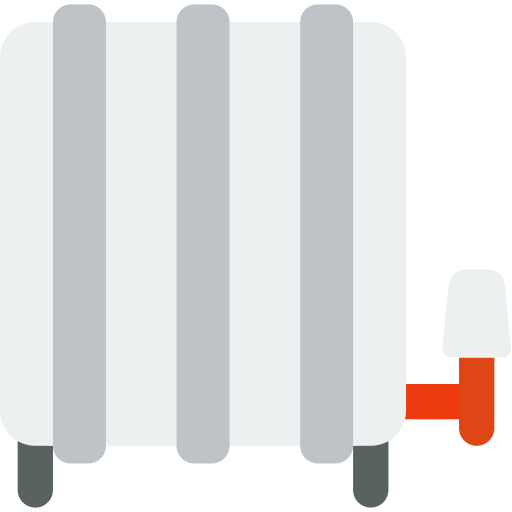
A few simple steps will make your home gas efficent
11 Ways to reduce your gas bill
Most homes in the UK use gas for heating, hot water and/or cooking all year round. While gas bills are likely to be higher in winter, there are steps you can take to reduce your gas bills and save money at any time.
One of the most effective ways to reduce gas bills is to replace an old boiler with a new, energy efficient combi boiler, but there is upfront costs involved in a boiler replacement. We understand that you may not be able to finance a new boiler, therefore, we have listed some ways for you to lower your gas bill.
1. Lower your water temperature
Ever find the water that comes out of your taps is too hot to touch? Then you're likely to be wasting gas and therefore not helping yourself with how to lower a gas bill. Try turning the water temperature on your boiler down a few degrees until you reach the optimum temperature.
You should have the option to lower the temperature of the hot water that comes out of your taps and shower heads which, over weeks and months, will help you save energy. If your hot water could be slightly lower, it's well worth turning the dial down a tad.

2. Only turn on the heating when you need it
As well as knowing when you should turn your heating off for good, be aware that it's a myth that you should leave your heating on low all day.
Whether you use a timer or manually turn it on,you can lower your gas bill by making sure your heating is only on when you need it or you'll be throwing money away.
3. Move your sofa away from radiator
Keep warm air circulating by ensuring large pieces of furniture are away from radiators. Otherwise, you'll have to heat your home for longer. Just by moving your sofa even six inches away from the radiator will allow heat to flow around the room much more effectively.
This can save you up to 10% on your gas bill. The more space between furniture and radiators the better.

4. Monitor your gas usage with an app
Knowledge is power, and apps like Hugo Energy give you a clear display of how you use your gas on a daily basis. Also, having an app on your phone acts as a helpful reminder – seeing it day to day on your phone will keep bills top of mind.
The app shows how often your boiler is coming on. If you can reduce the periods it comes on for and the amounts of times it comes on, you can save on the amount you are paying for gas.
5. Review gas bills
Unfortunately, switching energy providers to find a cheaper energy deal is pretty much a thing of the past since OfGem began increasing the energy price cap. However, while savings are likely to be minimal, every penny counts with how to lower a gas bill, so it's worth learning the difference between standard variable and fixed rate energy tariffs.
If you're about to come out of a fixed-rate tariff contract, it could be worth considering how to switch energy suppliers or contacting your current supplier to make sure you're on the best tariff for your home's energy usage and comparing it with competitor providers.

6. Make sure your home is well insulated
Good insulation is key to making your home more energy efficient. If you can maximise the thermal performance of your roof, walls, floor, windows and doors, that will give you the best possible foundation for becoming a low-energy household.
Roofs:
When it comes to insulating your house, your roof should be the first place you look to. A roof can be responsible for more than 35 per cent of home heat loss. Roof insulation is the cheapest and quickest way to stop heat escaping.
Walls:
Around a third of the heat in an insulated home is lost through the walls according to the Energy Saving Trust. Most homes in the UK have either solid walls that can be insulated from the inside or outside, or cavity walls, which have a gap that can be filled with insulation.
Floors:
Floor insulation can lower your gas bill. For newer homes, it will most likely have solid concrete floors, onto which you can add a layer of rigid insulation, whereas older homes with suspended timber floors can be insulated by fitting a layer of mineral wool under the floorboards.
Windows and Doors:
Use draught excluder tape for a quick fix. It helps stop draughts coming in through windows and gaps between doors, and throwing down an extra rug or two will also help chilly rooms.

7. Switch gas providers
One of the easiest ways to save money on your gas bill is to ensure that you're on the most cost-efficient plan available. If you've been on the same tariff for a long time, there's a good chance you're paying more than you need to. This is because there's usually quite a gap between the standard variable tariffs most gas companies offer and the cheapest fixed plans available on the market.
Use a price comparison website to assess all the different tariffs on offer and go from there. You may be surprised by how much you could save.
8. Keep heating systems maintained
Lower your gas bill by booking a yearly service with a Gas Safe Registered engineer and stick to the recommended time frame for each service, your boiler will work at maximum capacity this way.
Maintenance doesn't just help lower a gas bill, it will keep it both safe and working efficiently. Which means regular services can help keep energy costs lower.
If your boiler is not maintained your energy bills can be higher.

9. Invest in a smart thermostat
A smart thermostat will allow you to operate your heating system remotely via an app on your mobile phone or tablet. Some will save your daily routine and work out the best usage for you, others will alter your settings depending on the weather. Some smart thermostats can also adjust the temperature of your boiler output to make sure it's always operating at optimum efficiency.
It is recommended to team a smart thermostat with smart thermostatic radiator valves so you can remotely control exactly what rooms in your house are heated. When utilised properly, it's one of the cheapest and most convenient ways to improve energy ratings in your home, cutting heating bills and reducing CO2 emissions.
10. Replace your old boiler
Though a new boiler can be expensive (usually upwards of £1,000), they are a good investment as a newer model will significantly cut your bills. Heating company Vaillant agrees, stating a 30 per cent reduction in bills for homeowners who invest in one of its energy-efficient boilers.
New A-rated boilers (any boiler over a 90 per cent efficiency) can give you 90p or more worth of heat for every £1 you put in.
To the contrary, this is 60-80p for every £1 in older models. Replacing your old boiler also reduces your carbon footprint.

11. Lower your thermostat
According to Moneysavingexpert , for each degree you cut the thermostat you can expect to cut your energy bills by around four per cent. That's about £65 a year on average for a typical home.
The World Health Organisation says that 18 degrees is enough for healthy adults, with slightly higher temperatures needed for the very old or young.
If you're wondering about the most efficient way to heat your home and how to lower a gas bill, it's best to tailor it to your lifestyle.


